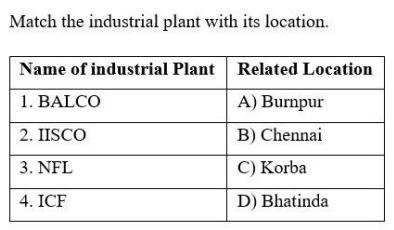Start learning 50% faster. Sign in now
According to the Companies Act, a person or their relative or partner who is indebted to the company for an amount exceeding Rs. 5,00,000 is disqualified for the appointment of an auditor. This means that if an individual, their relative, or their partner owes the company an amount exceeding Rs. 5,00,000, they cannot be appointed as the auditor of that company. This provision is in place to ensure independence and impartiality in the audit process, as individuals with significant debts to the company may have a conflict of interest or be influenced by their financial obligations.
The RBI announced to appoint an Internal Ombudsman for the Non-Deposit taking NBFCs (NBFCs-ND) with asset size of ______ crore
Consider the following statements about Bharat Ratna.
(1) Nanaji Deshmukh received this award in 2019.
(2) Nanaji Deshmukh received t...
Name the person who presented the scheme to link Indian rivers by constructing a chain of canals in 1974.

The Government of India started DACE scheme in April 2022. This scheme was launched under which of the following ministries?
Who presented independent India's first-ever Budget?
Land, labour, capital and entrepreneurship are examples of ___________.
Which of the following states recently announced to join the Pradhan Mantri Fasal Bima Yojana ( PMFBY ) scheme seeking to compensate farmers against cr...
“Statue of Equality” was unveiled in Maryland, USA in honour of whom among the following?